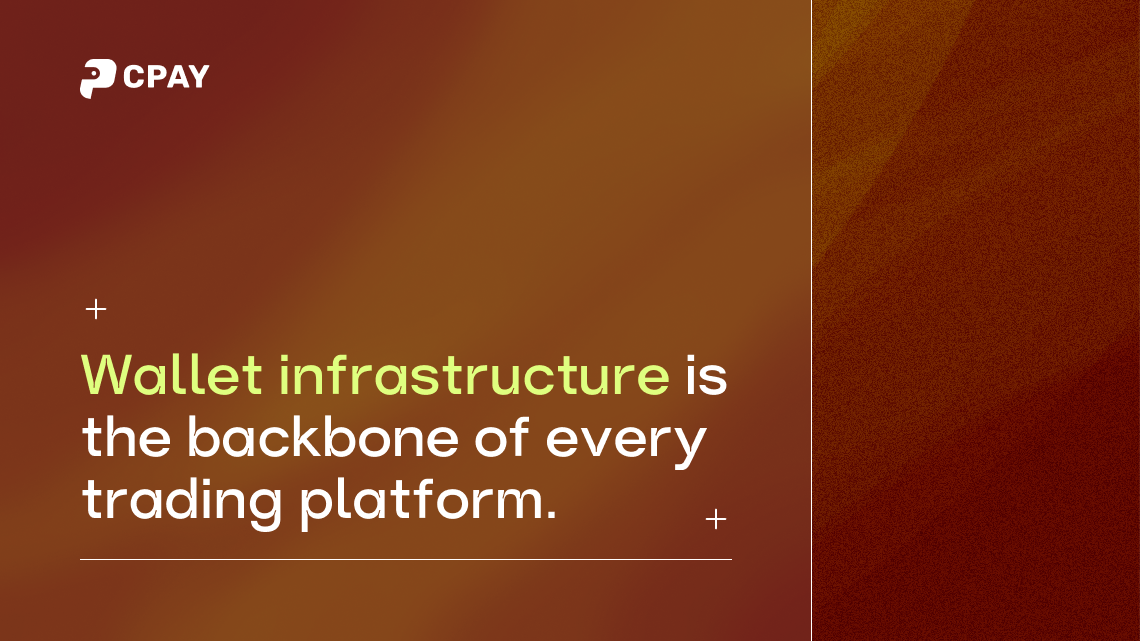In the ever-evolving landscape of digital currencies, one question has proven particularly salient: BTC vs. BCH, what's the difference? Since their inception, Bitcoin (BTC) and Bitcoin Cash (BCH) have dominated discussions, investor portfolios, and headlines. This article is a comprehensive guide that dissects these two digital currencies' intricate differences, histories, and prospects, popularity in most crypto-friendly countries.
The significance of understanding the key differences between BTC and BCH goes beyond mere terminological nuances. Each cryptocurrency represents a distinct approach to decentralization, scalability, and user experience. In short, Bitcoin and Bitcoin Cash have different visions of what a cryptocurrency should offer and how it should scale its operations.
Before diving into technical details, market adoption rates, and controversial forks, it is crucial to start from the beginning — their history and origins. These are not merely two competing currencies; they come from a shared history, literally and metaphorically splitting at a crucial fork in the road. Understanding this shared past is essential for comprehending the nuances that differentiate them today.
History and Origins
Bitcoin was the brainchild of an anonymous entity known as Satoshi Nakamoto, conceptualized as a peer-to-peer electronic cash system. However, as the Bitcoin network grew in adoption, limitations such as the 1 MB block size became increasingly apparent. This led to scalability issues and skyrocketing transaction fees. The Bitcoin community was divided on how to address these challenges, and this disagreement culminated in a hard fork on August 1, 2017.
This division led to the birth of Bitcoin Cash vs. Bitcoin, each with its community, goals, and technical solutions. Bitcoin maintained the original 1 MB block size but aimed to improve scalability through solutions like SegWit (Segregated Witness) and the Lightning Network. On the other hand, Bitcoin Cash opted to increase block size to 8 MB, aiming to make transactions faster and fees lower.
Bitcoin Core vs. Bitcoin Cash is also frequently mentioned in this context. Bitcoin Core is the software that runs the original Bitcoin protocol, and the team's vision was ultimately upheld by the segment of the community that opposed the creation of Bitcoin Cash. It is important to note that although people often use Bitcoin Core to refer to the original Bitcoin, the software and the cryptocurrency are not synonymous. Bitcoin Core refers to the software, while Bitcoin (BTC) refers to the currency.
Understanding Bitcoin: Goals, Functionality, and Features
Bitcoin was the first cryptocurrency invented by an unknown person or group under the pseudonym Satoshi Nakamoto and released as an open-source software in 2009. Bitcoin's primary aim was to function as a peer-to-peer cash system, allowing users to transact without intermediaries like banks. This blockchain technology was a revolutionary step in achieving this goal, ensuring the immutability and transparency of transactions.
Over the years, Bitcoin has arguably transitioned from being a virtual cash system to more of a store of value, often dubbed "digital gold." The factors contributing to this transition include high transaction fees and relatively slower confirmation times compared to traditional payment systems. These are issues born out of scalability limitations that the Bitcoin community aims to address through second-layer solutions like the Lightning Network.
When discussing BCH vs. BTC, it's also vital to consider the role of mining in each network. Bitcoin uses a consensus algorithm known as Proof of Work (PoW), where miners solve complex mathematical problems to validate transactions and create new blocks. This process is resource-intensive and contributes to the network's security but also leads to longer transaction times and higher fees, especially during periods of congestion.
What is BCH?
So, what is BCH cryptocurrency? As mentioned earlier, Bitcoin Cash emerged as a hard fork from Bitcoin in 2017, following disagreements within the Bitcoin community on how to best solve the scalability issues plaguing the original currency. Bitcoin Cash was designed to facilitate quicker transactions by increasing the block size from Bitcoin's 1 MB to 8 MB and later to 32 MB. This significant increase allows more transactions per block, reducing fees and confirmation times.
Unlike Bitcoin, which has increasingly been regarded as a store of value, Bitcoin Cash aims to be what Bitcoin initially intended—a peer-to-peer electronic cash system. What's Bitcoin Cash got that Bitcoin doesn't? It's the commitment to keeping transaction fees low and confirmation times fast, regardless of the network's size or the number of transactions.
In the context of Bitcoin Cash vs. Bitcoin, discussing the adoption rates of the two cryptocurrencies is essential. Although Bitcoin Cash aimed to solve Bitcoin's scalability issues and offer a more user-centric alternative, it hasn't quite seen the same level of mass adoption. However, many vendors and services accept Bitcoin Cash, which has developed a dedicated following among those who use it for everyday transactions.
Technical Differences Between Bitcoin and Bitcoin Cash
Perhaps the most immediate difference between Bitcoin and Bitcoin Cash is their block size. Bitcoin's block size is capped at 1 MB, making it more challenging to scale the network and accommodate increasing transaction volumes. The 1 MB limit leads to longer confirmation times and higher fees during peak periods.
In contrast, the difference between BTC and BCH is stark regarding block size—Bitcoin Cash started with an 8 MB block size, which was later upgraded to 32 MB. The rationale behind this was to facilitate faster transactions and lower fees. This larger block size has, to some extent, achieved its intended purpose, although it has also led to debates about the decentralization and security of the Bitcoin Cash network.
These technical differences extend to other solutions for scalability and user experience. Bitcoin has invested in second-layer solutions like the Lightning Network to alleviate congestion, whereas Bitcoin Cash focuses on on-chain scaling by maintaining a larger block size. The approaches reflect their diverging philosophies: Bitcoin leans towards being a secure, immutable store of value, while Bitcoin Cash prioritizes ease of transaction and low fees.
Economic Viability: Evaluating Market Cap and Community Support in BCH vs. BTC
When discussing BCH vs. BTC in the context of economic viability, it is crucial to examine factors like market capitalization, transaction volume, and community support. Bitcoin leads in all these metrics, serving as a testament to its first-mover advantage and more extensive acceptance among merchants, investors, and institutions.
While Bitcoin Cash aims to provide quicker and cheaper transactions, it has not seen the same level of adoption as Bitcoin. This has implications for its long-term viability as a currency for daily transactions. However, Bitcoin Cash has a dedicated community and has seen integration into various payment systems, indicating economic viability, albeit not on the same scale as Bitcoin.
Both digital currencies have shown resilience over the years, surviving market crashes, regulatory scrutiny, and internal community disputes. But Bitcoin and Bitcoin Cash serve different niches within the broader cryptocurrency ecosystem. Bitcoin has solidified its status as a store of value and "digital gold," while Bitcoin Cash aims to fulfill the original promise of Bitcoin as "peer-to-peer electronic cash."
Bitcoin to Bitcoin Cash: A User's Perspective
From a user's standpoint, converting Bitcoin to Bitcoin Cash involves a simple exchange transaction, which can be facilitated through numerous cryptocurrency exchanges. However, the decision to convert goes beyond mere logistics. It involves assessing whether the features of Bitcoin Cash—such as lower transaction fees and faster confirmation times—align with one's usage requirements.
Moreover, the user experience in the BTC vs. BCH debate varies significantly, especially for those looking to use these digital currencies for everyday transactions. While Bitcoin Cash offers lower fees and faster transactions, Bitcoin provides greater security and is more widely accepted. Therefore, the choice between the two often boils down to the user's specific needs and understanding each cryptocurrency's strengths and weaknesses.
The Bitcoin Core vs. Bitcoin Cash debate also spills into the user experience. Those who prioritize the original vision of Bitcoin as conceived by Satoshi Nakamoto might find Bitcoin Cash more appealing for daily transactions. On the other hand, those who view digital currencies as an investment might lean towards Bitcoin, given its more extensive network and higher liquidity.
Cryptocurrency payment gateways and wallets play a vital role in shaping the user experience and determining the efficacy of any digital currency, be it Bitcoin or Bitcoin Cash. These platforms essentially serve as bridges between users and the broader cryptocurrency networks, facilitating digital asset storage, sending, and receiving.
Cryptocurrency Payment Gateways: Facilitators of Commerce
Cryptocurrency payment gateways are platforms like CPAY that enable merchants to accept digital currencies as payment for goods or services. When considering Bitcoin Cash vs. Bitcoin, it's important to note the differences in transaction speed and cost, as these factors will influence a merchant's choice of accepting either or both currencies.
With its higher transaction fees and slower confirmation times, Bitcoin is often considered less suitable for microtransactions. On the other hand, with its larger block size and lower fees, Bitcoin Cash presents itself as a more appealing option for merchants dealing with smaller, more frequent transactions. Some payment gateways offer automatic conversion features, allowing merchants to accept BCH and automatically convert it to BTC or even fiat currency, thereby offering flexibility.
Cryptocurrency Wallets: Personal Safes in the Digital World
Cryptocurrency wallets are digital tools that allow you to securely store and manage your digital assets. When discussing BCH vs. BTC, the wallet choices may vary considerably due to each blockchain's specific features and requirements. For example, some wallets, like the Lightning Network, may support the advanced functionality of Bitcoin's layer-two solutions. In contrast, others may be optimized for the larger block sizes of Bitcoin Cash. Understanding the technical compatibilities of your chosen wallet with either BTC or BCH is crucial for a seamless experience.

Both wallets and payment gateways are integral in shaping BTC and BCH's economic viability and user adoption rates. They act as the user interface to the blockchain, and their efficiency, security, and ease of use can either encourage or deter individuals and merchants from participating in the network. Understanding the role of these platforms is essential when considering the broader context of BTC vs. BCH and their respective places in the digital economy.
Final Thoughts on Bitcoin vs. Bitcoin Cash
In summary, the essential question is not just what Bitcoin Cash vs. Bitcoin, but how each aims to solve the inherent challenges in decentralized digital currencies. While they share a common origin, they have diverged in philosophy, technical solutions, and target audiences. Bitcoin vs. Bitcoin Cash is not merely a competition for market share; it's a contest of ideas, each with advantages and limitations.
Bitcoin focuses on security and long-term scalability through layer-two solutions, even at the cost of higher fees and slower transactions in the short term. Bitcoin Cash, on the other hand, prioritizes quick, low-cost transactions and aims to solve scalability issues through bigger block sizes. Whether you're an investor, developer, or everyday user, understanding these differences is crucial for navigating the complex landscape of cryptocurrencies.
The story of Bitcoin and Bitcoin Cash illustrates cryptocurrencies' broader themes and challenges — scalability, security, and adoption. While the future remains uncertain for both, what is clear is that each will continue to play a significant role in shaping the digital currency landscape for years to come.





-vs-bitcoin-cash-(bch).webp)


